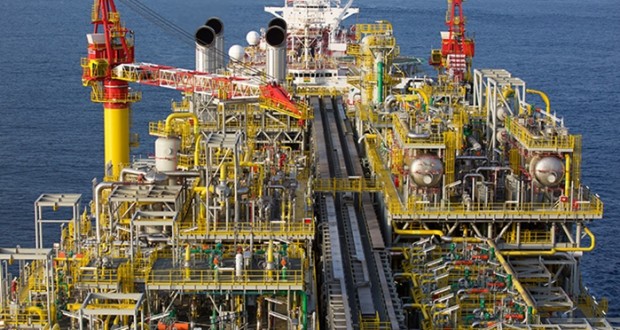Oil prices are back in positive territory Tuesday after a stunning collapse Monday that saw levels crash below zero, trading at the lowest level since NYMEX opened futures trading in 1983. Asian stocks and US stock futures retreated.
US oil futures popped more than 100% — albeit to trade at just $1.65 a barrel. The May contract for West Texas International, which expires Tuesday, finished regular trading Monday at -$37.63 a barrel.
The June contract, which is now being traded more actively, rose 4.5% to $21.35 a barrel during Asian trading hours, still a troublesomely low number.
The coronavirus pandemic has caused oil demand to drop so rapidly that the world is running out of room to store barrels. At the same time, Saudi Arabia briefly flooded the world with oil in a price war with Russia before they both hammered out a new agreement — with other producers — to cut supply by a record amount a little over a week ago. Analysts also attributed Monday's plunge to frantic last minute trading because of the quickly expiring May contract.
"Regardless of what OPEC does, there will be structural demand loss for oil due to less travel," wrote Stephen Innes chief global markets strategist at AxiCorp in a Tuesday research note. "At a minimum, oil prices will be the last asset class to recover from lockdown.”
Futures for Brent crude, the global benchmark, moved slightly lower to $25.39 a barrel on Tuesday.
Asian stocks, meanwhile, accelerated early losses. Hong Kong's Hang Seng tumbled 2.4%. Japan's Nikkei 225 fell 1.9%. China's Shanghai Composite lost 1.5%.
South Korea's Kospi tumbled nearly 3% and the won slipped as much as 1.7% against the US dollar as CNN reported — citing a US official with direct knowledge — that the United States is monitoring intelligence that suggests North Korean leader Kim Jong Un is in grave danger after undergoing a previous surgery.
South Korea's Presidential Blue House said in a statement provided to reporters that they have nothing to confirm on reports about Kim's health and that "no unusual signs" have been detected inside North Korea.
The Kospi pared losses and was last down 1.5%. The won also recovered somewhat, though was still weaker against the dollar compared to Monday.
Regional markets have only priced in "a small-ish reaction to the news," wrote Jeffrey Halley, senior market analyst for Asia Pacific at Oanda, in a Tuesday research note. But he added that "if the North Korean news proves to be correct, the region is set for a period of uncertainty."
US stock futures reversed early gains. Dow futures were last down 170 points, or about 0.7%. S&P 500 futures dropped 0.4% and Nasdaq futures were down about 0.3%.
The Dow closed 592 points lower, or 2.4%,on Monday, marking the worst day for the index since April 1. The S&P 500 finished down 1.8% and the Nasdaq Composite closed 1% lower.
Latest Stories
-
Akufo-Addo leads nationwide commissioning of 80 educational projects
3 mins -
Ghana and Seychelles strengthen bilateral ties with focus on key sectors
34 mins -
National Elections Security Taskforce meets political party heads ahead of December elections
37 mins -
Samsung’s AI-powered innovations honored by Consumer Technology Association
57 mins -
Fugitive Zambian MP arrested in Zimbabwe – minister
1 hour -
Town council in Canada at standstill over refusal to take King’s oath
1 hour -
Trump picks Pam Bondi as attorney general after Matt Gaetz withdraws
2 hours -
Providing quality seeds to farmers is first step towards achieving food security in Ghana
2 hours -
Thousands of PayPal customers report brief outage
2 hours -
Gary Gensler to leave role as SEC chairman
2 hours -
Contraceptive pills recalled in South Africa after mix-up
2 hours -
Patient sues Algerian author over claims he used her in novel
2 hours -
Kenya’s president cancels major deals with Adani Group
3 hours -
COP29: Africa urged to invest in youth to lead fight against climate change
3 hours -
How Kenya’s evangelical president has fallen out with churches
3 hours

